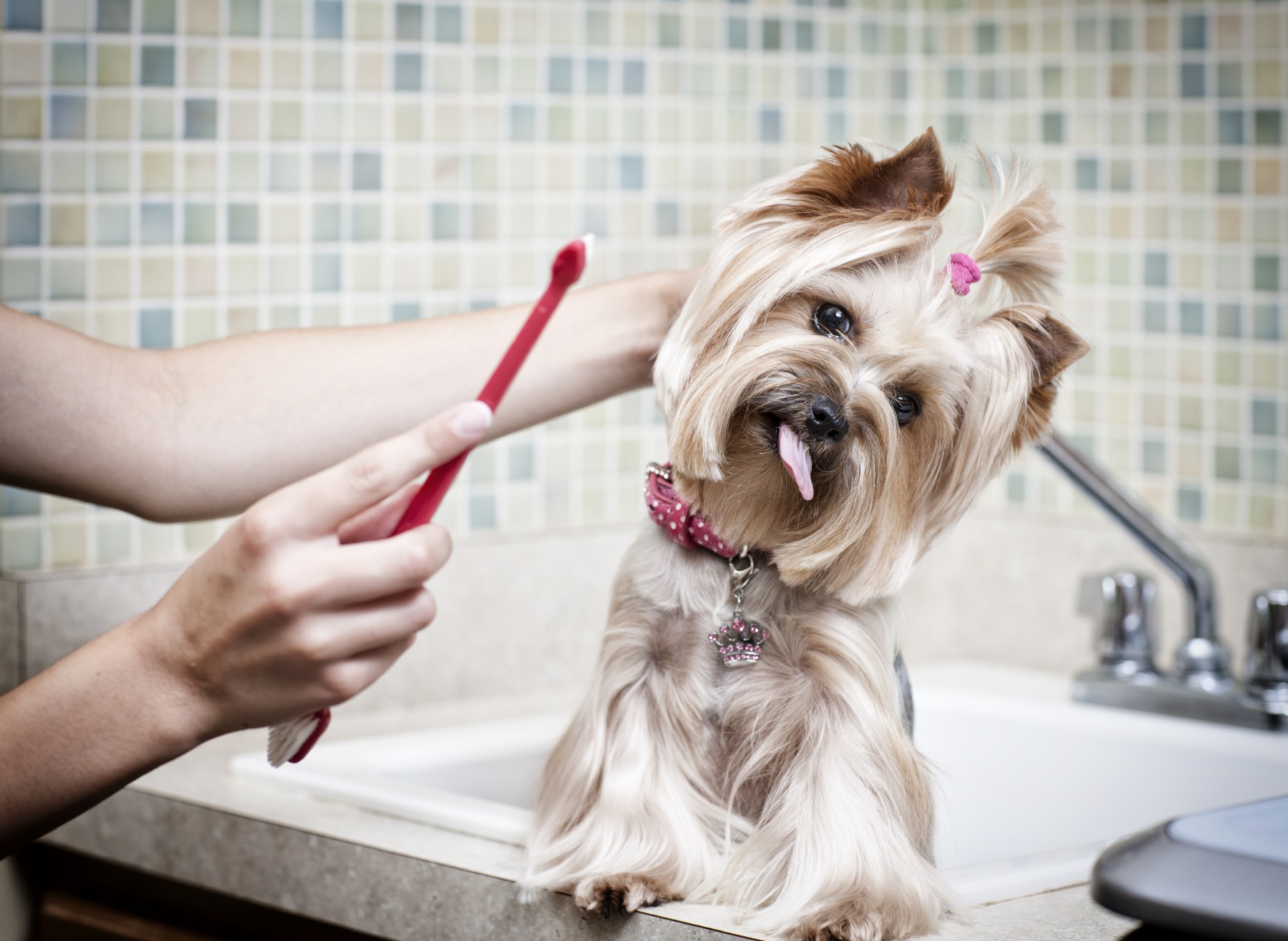 There are many ways to support a healthy lifestyle for your pet, including regular exercise, proper nutrition, and disease prevention. Additionally, proactive pet dental care can add years to your pet’s life. Through a combination of thorough dental exams, professional cleanings, and diligent at-home brushing, your pet can achieve optimal health and live a fuller, happier life.
There are many ways to support a healthy lifestyle for your pet, including regular exercise, proper nutrition, and disease prevention. Additionally, proactive pet dental care can add years to your pet’s life. Through a combination of thorough dental exams, professional cleanings, and diligent at-home brushing, your pet can achieve optimal health and live a fuller, happier life.
Startling Stats
More than half of all dogs and cats are predicted to have periodontal disease by the age of three. If that’s not startling enough, consider that bacteria from plaque and tartar build up can actually enter the bloodstream and threaten the health of major organs, such as the heart, kidneys, or liver.
As a result, pet dental care is a major factor in preventive wellness. It can protect your pet from painful diseases, as well as minimize overall health costs related to treatment.
Pet Dental Care and Wellness
During your pet’s regular wellness visit, we’ll perform an overall physical assessment of your pet, including an oral examination. Depending on the state of your pet’s teeth and gums, we may order digital x-rays to see what’s going on beneath the surface. If your pet requires a veterinary cleaning or dental surgery, we’ll create an individual treatment plan for him or her.
A Word on Anesthesia
We understand that placing your pet under anesthesia can trigger concerns and questions, but this is the only way to minimize stress and ensure your pet’s safety.
We’ll walk through every step of the process with you so you can be sure your pet receives the highest level of care and compassion. Pre-anesthetic testing along with close monitoring by our team will keep your pet safe and comfortable throughout the procedure.
What to Expect
During a typical cleaning, we will:
- Continuously monitor your pet via EKG and blood oxygen levels
- Clean or scale all accessible tooth surfaces and gum lines
- Extract any teeth, if necessary
- Assess gum pockets where bacteria grow and remove excessive gum tissue
- Polish teeth
- Use antibacterial mouthwash and fluoride treatment
- Monitor your pet closely during post-anesthesia recovery
Brushing Your Pet’s Teeth
After a veterinary cleaning, you’ll want to make sure you maintain good habits at home (but allow a week or so for healing). You may have introduced brushing as a puppy or kitten, but even senior pets can get used to it if it’s brand new.
At True Care, we can advise you on the right products (human toothpaste should never be used on your pet). Following a slow, patient introduction, you and your pet can work up to a regular brushing routine.
Pet dental care should not be ignored. Please let us know if your pet has persistent bad breath, brown or yellow teeth, swollen gums, or noticeable pain when eating. At True Care, we’re committed to offering the best in pet dental care and look forward to serving you soon!

